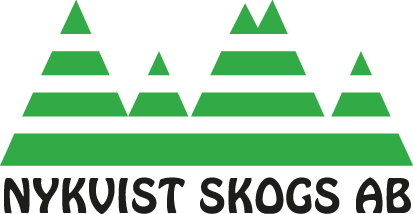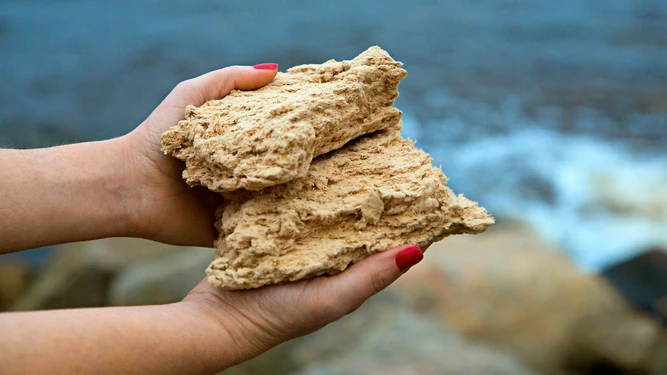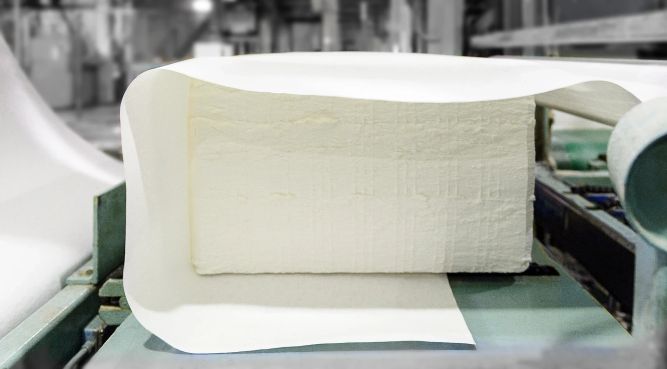Katarina Holmsten, Laboratory technician
Katarina Holmsten, laboratory technician in Vallvik, still loves her job after 40 years with the company. Over the years, she has worked in many different departments: bale truck, cardboard room, mixing plant (OP5), caretaking, shift lab and day lab.

What does being a laboratory technician at a sulphate plant such as Vallvik Mill entail?
– Together with my five colleagues, I check things such as the wastewater values (for example, pH level, conductivity, COD) to make sure that we are complying with the permitted values for discharges into the water. We also ensure that the pulp meets the quality that the customer expects. We check the pulp quality by reading off the light intensity and the proportions of dirt particles and metals in the pulp.
What’s your opinion of the work climate at the mill?
– Health and well-being are incredibly important. When my workmates feel good, I feel good. When everyone feels good, the factory does well. We’re like a big family here. And I’m not the only one that thinks that – everybody does. We support one another, it’s great.
What’s do you consider the best thing about your job and your workplace?
– That I have the chance to develop all the time. It’s also wonderful to see all the different things you can make with the end product, and how everything is constantly progressing. It’s fantastic to feel you’re part of the development, for example when customers or partners want samples for use in developing new products, or when you receive direct feedback from outside.
What led you to start working here – and to stay for so long?
– I was born here in Vallvik. Back at the start, there weren’t that many job openings in the local area, but I’ve had such a damned good time here that I’ve never felt the need to look for a different job. I’m not the person who’s been working here longest, there are two other laboratory technicians who joined the company before me.
What’s the biggest difference at the mill now, compared to how it was in 1981?
– The biggest difference by far is the attitude to safety – safety always takes top priority today. For example, we remind each other directly if someone forgets to put on protective clothing or equipment.
What qualifications do you need to work as a laboratory technician?
– I don’t have anything but a two-year high school course in process technology. Today, however, you need to have studied natural sciences at high school, ideally specialising in chemistry. Of course, you also need to have completed the internal training course to learn all the different steps.
What would you say to other women who might be thinking of applying to work here?
– A lot of what we do at the mill is controlled by computers today, so the work isn’t as heavy as a lot of people may think. What’s most important is for you to dare to ask for help if you get stuck. It’s not all that “dangerous” to work here – just look at me: I’ve been here for 40 years and I love it!



